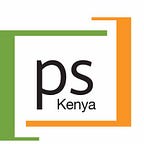Delivering Sustainable and Equitable Increases in Family Planning (DESIP) Programme Commissions Community Based Distributors to help reach out to Clients with FP Information in hard to reach areas.
By Ezra Abaga. PS Kenya Corporate Communications
Narok 11th March 2020. Access to reproductive health information and Family Planning services by women and girls not only ensures that they can safely plan their pregnancy, but also contributes to other related issues like better child health, poverty reduction, gender equality and greater education outcomes.
Achieving this remains a pressing challenge that demands combined effort from all stakeholders to have it fully realized. By addressing factors like availability of commodities, access to the right information on Family Planning and availability of enough skilled healthcare workers to provide these services will see an increased access to and uptake of FP services in Kenya.
Globally, evidence on community-based distributors shows that trained Community health workers can safely, acceptably and effectively provide injectable contraceptive services within their community (new recommendations WHO for task sharing 2017). Nationally, a demonstration project to assess the effectiveness of using Community Health Workers to provide injectable contraceptives was successfully carried out in Tharaka district in the former Eastern province by the Ministry of health between August 2009– August 2010 and the same findings adopted in the National Family planning Guidelines 6th Edition .
Informed by such findings, the Delivering Sustainable and Equitable Increases in Family Planning (DESIP) programme saw the need to incorporate CHWs as Community based distributors (CBDs)in order to reach out to all intended beneficiaries. In partnership with the Ministry of Health and the County Government of Narok, the Community Based Distributors were taken through a 3 weeks rigorous training that saw them get empowered with the necessary skills to educate, counsel and provide short term FP services to the community.
The community-based distributor’s initiative is a high impact, low cost intervention of accelerating progress toward SDGs. This intervention aims to remove barriers that impede access to FP information and services, with major restrictive barriers in the provision of family planning services in Kenya being distance, cost, religion, culture, rumors and misconception, provider bias, and legal and medical regulations.
While officiating the CBDs graduation ceremony (A first one in Narok County) , the Head, Division of Community Strategy at the Ministry of Health reiterated on the bigger role the CBDs will do in improving health indicators.
“Focusing on the community is the best way to go if the County wants to improve on Health Indicators, I also request the CBDs not work alone but instead work together with the Community Health Extension Workers (CHEWs) who will be a link between them and the health facility. I also assure of the divisions support to the County in implementation of the Community Strategy” stated Dr Salim.
On his part the Head Division of Reproductive and Maternal Health commended the County for the great step they had taken through the graduation.
“What has taken place here today is a great thing that the County should be proud of. Going forward proper supervision mechanisms should be put in place to ensure that this initiative is successful” stated Dr Kaliti.
Speaking on behalf of the project “Working with the counties the project will support Counties to train healthcare workers on Family planning module 1 & II, scale up community based distribution, rollout the training to the other counties and work with the County and National government to monitor the progress of the scale up of both DMPA IM and DMPA- SC “stated Josephine Mbiyu-Project Director DESIP
Through its Chief Officer of Health, the County Government of Narok reiterated its commitment in ensuring that the initiative was a success.
Similar trainings will be conducted in other under-served/hard to reach areas of Kenya which include: Baringo, Garissa, Mandera, Marsabit, Narok, Samburu,Tana River, Turkana, Wajir, West Pokot, Kajiado, Kilifi and Isiolo Counties.
